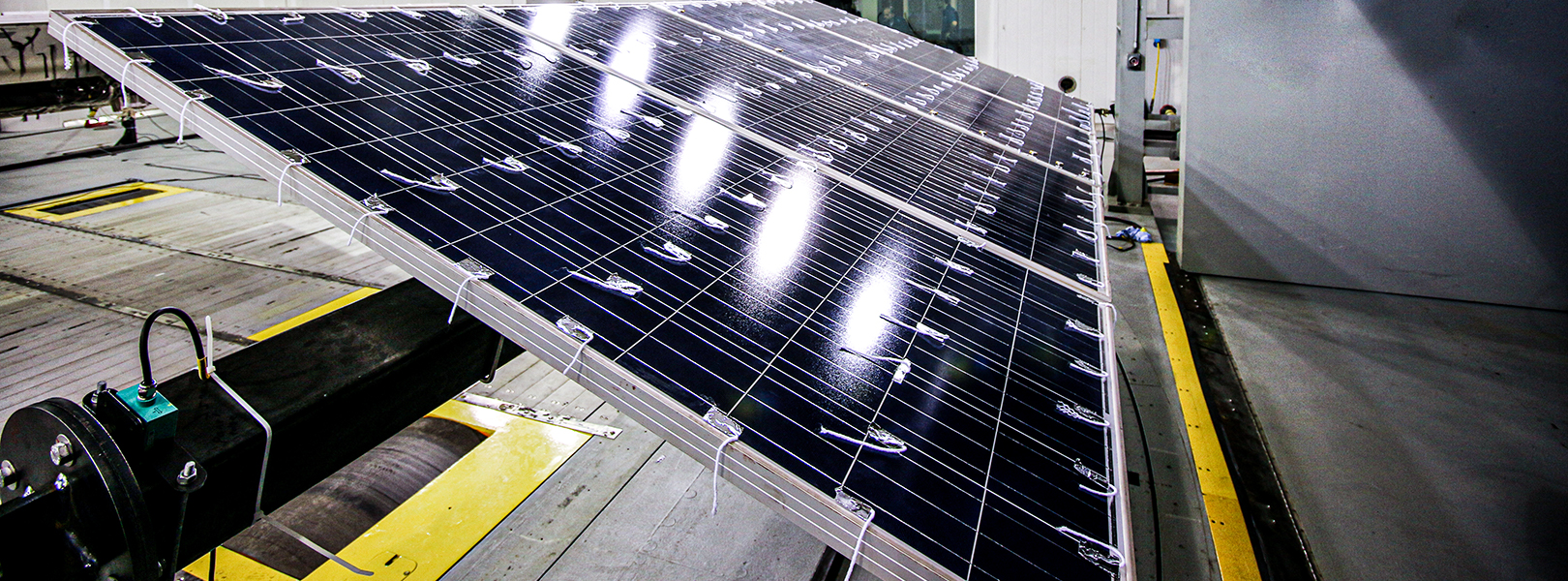Architecture and Civil Engineering Testing
Testing is essential for companies who want to remain players in this fiercely competitive market. Long life expectancy, high quality, and safety of assets are always objectives in the architectural and civil engineering industry.
ACE is here to help. We are experts at a wide spectrum of climate testing for civil engineers and architects. Wind, rain, snow, freezing rain and ice testing can be conducted on a full spectrum of buildings, walls, roofs, solar panels and almost any other test object you can provide. If it fits in our large industrial test facility, we can test it!
ACE is well versed in rain penetration testing. We have worked with clients to conduct up to Category 4 hurricane testing on full-scale products and structures. Understanding and predicting moisture movement within and through test objects is very important to predicting and improving performance and durability. Since driving rain deposition on walls and roofs is quantitatively the largest source of moisture, it is no surprise that controlling rain penetration is one of the most important parts of a successful moisture control strategy. We have rain testing equipment set up in both our Climatic Wind Tunnel (CWT), front facing with yaw capability, as well as our Small Climatic Chamber (SCC), for overhead evaluation.

Structural, civil, and architectural testing FAQ
-
What does ACE provide for architecture or civil engineering testing?
ACE has four industrial-sized climatic test chambers that provide a temperature range of -40C to +60C under controlled humidity levels. The ability to meet and hold these metrics and then repeat them over and over again provides a high-quality testing environment that delivers on your testing objectives.
In addition, ACE can provide wind up to 250 km/h, rain, snow, ice, freezing rain and fog to under similar stringent controls to provide the results you need.
-
Does ACE have experience in architectural and/or civil engineering testing?
ACE has highly qualified engineers and technicians to help you design your test plan and then execute the plan in an effective and efficient manner. We have worked with manufacturers and engineering consulting firms from across North America on testing projects. ACE has the experienced team to deliver the solution to your testing needs.
-
Does ACE have the required security to keep my intellectual property safe?
Yes, ACE is actually Controlled Goods-certified—for Canadian defence testing—so we are well-versed in working with our clients to keep their product knowledge private. We have long experience working with well-defined policies and procedures to implement security while you are on site. We can also work with you on any additional safety and security requirements you may have.
-
We have large test objects; is ACE capable of handling them?
We have worked on many development and testing projects that involved large structures such as commercial roofs, outdoor walkway covers and balcony railings. ACE was designed and built to be a large industrial test facility. All of the size specifications of our chambers (and other information) is included on our fact sheet and in the Testing chambers section of our website.
-
We are interested in academic research support for our project; can ACE help facilitate this?
ACE is located at Ontario Tech University. This provides us with a unique capability to bring together industry, academics and potential project funding for projects. Contact us to start the conversation about research collaboration.
Testing that translates into solutions
ACE has proven to be a valuable tool for the verification of simulations and estimates made by manufacturers in the building trade. ACE can also help verify climate-related claims prior to mass production, or, for insurance purposes after a climate event. ACE helps solve your testing problem by providing a better understanding of how climate impacts your test object. We can help with rain penetration, wind load, solar load, snow and ice accretion, and other climatic testing conditions. Successful testing is a key element to a successful construction project.

